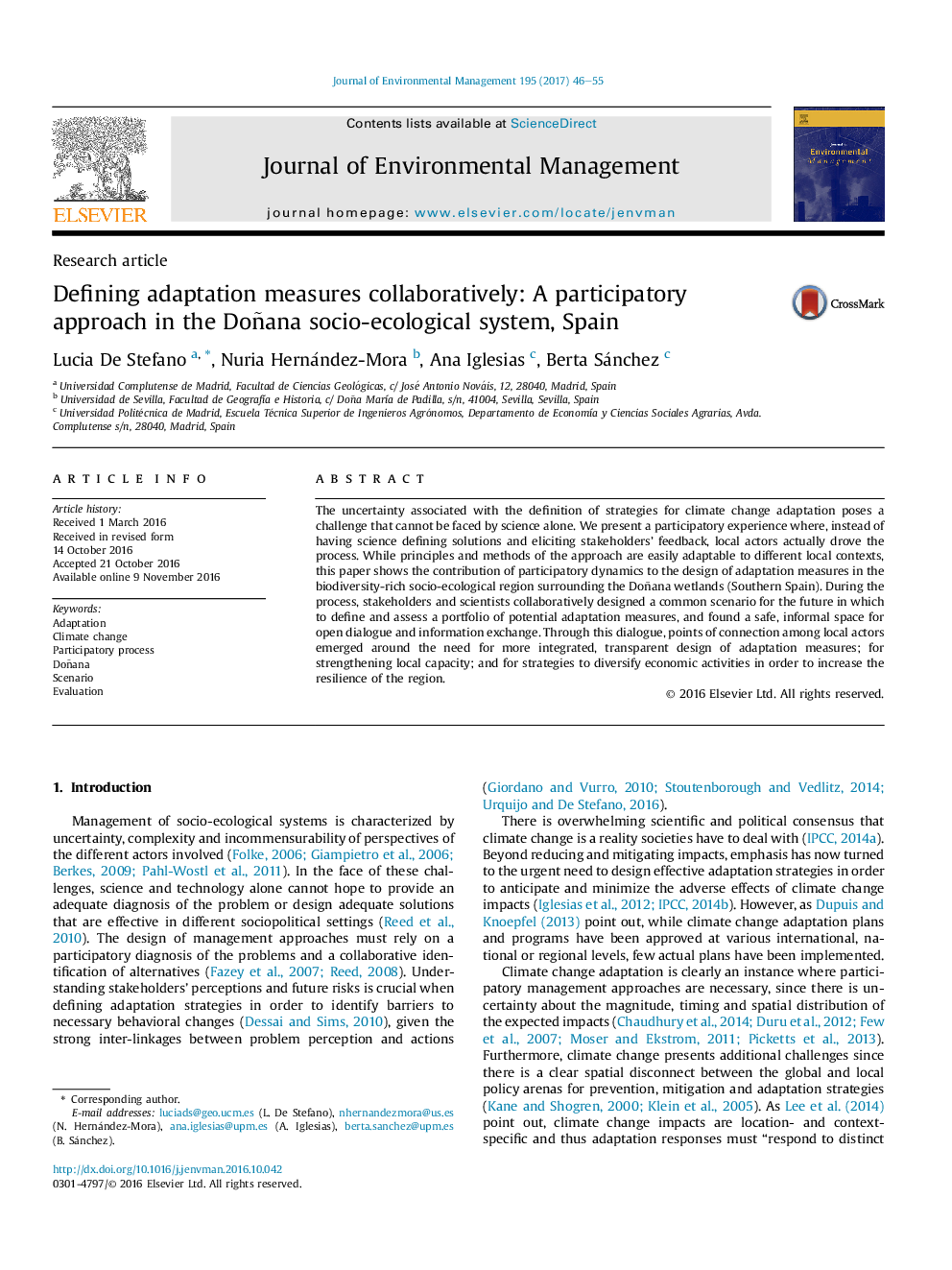| Article ID | Journal | Published Year | Pages | File Type |
|---|---|---|---|---|
| 5116636 | Journal of Environmental Management | 2017 | 10 Pages |
â¢Local actors identify impacts and measures based on their experience and concerns.â¢Collaborative scenario-building and evaluation of measures broaden perspectives.â¢Measures are assessed individually and then grouped in portfolios.â¢Actors converge on the need for transparent, integrated adaptation policies.â¢Building local capacity and diversifying local economy are highly ranked measures.
The uncertainty associated with the definition of strategies for climate change adaptation poses a challenge that cannot be faced by science alone. We present a participatory experience where, instead of having science defining solutions and eliciting stakeholders' feedback, local actors actually drove the process. While principles and methods of the approach are easily adaptable to different local contexts, this paper shows the contribution of participatory dynamics to the design of adaptation measures in the biodiversity-rich socio-ecological region surrounding the Doñana wetlands (Southern Spain). During the process, stakeholders and scientists collaboratively designed a common scenario for the future in which to define and assess a portfolio of potential adaptation measures, and found a safe, informal space for open dialogue and information exchange. Through this dialogue, points of connection among local actors emerged around the need for more integrated, transparent design of adaptation measures; for strengthening local capacity; and for strategies to diversify economic activities in order to increase the resilience of the region.
